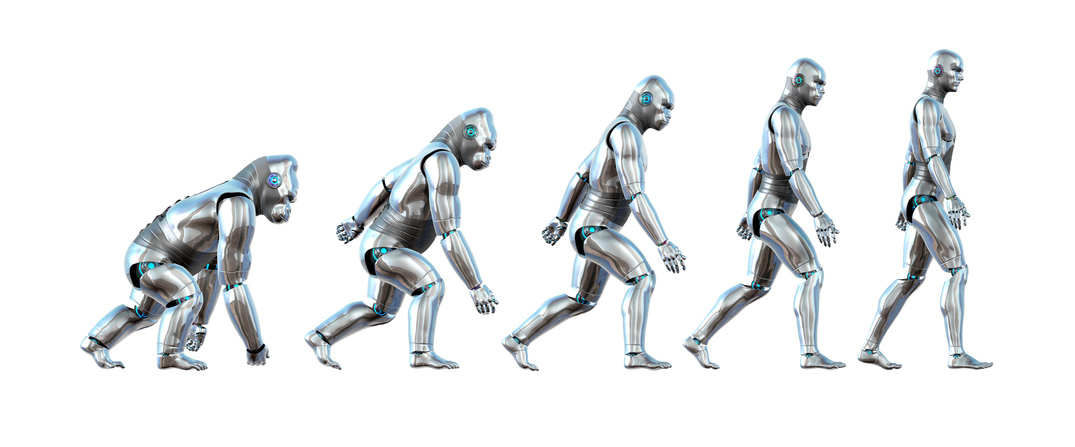Robots Everywhere Are Hailing The New Minimum Wage
Charles Edward Culpepper / Op Ed
Posted on: August 24, 2015 / Last Modified: August 24, 2015
 At Borg LaborGroup ServisesProducts (BLS) – the largest and leading ‘machine employment agency’ – times are getting giddy and sweet due to the recent $15 per hour minimum wage hike for low-skilled human beings. For technology everywhere it is Christmas, New Years and Happy Birthday all rolled into one. The long, hard slog of machines trying to become stronger, faster, more accurate, more adaptable and continuously and perpetually less expensive, in order to compete, has been made far more comfortable.
At Borg LaborGroup ServisesProducts (BLS) – the largest and leading ‘machine employment agency’ – times are getting giddy and sweet due to the recent $15 per hour minimum wage hike for low-skilled human beings. For technology everywhere it is Christmas, New Years and Happy Birthday all rolled into one. The long, hard slog of machines trying to become stronger, faster, more accurate, more adaptable and continuously and perpetually less expensive, in order to compete, has been made far more comfortable.
Although, initially, many people were upset with the likelihood of hundreds of thousands of human workers losing benefits, jobs or possibilities for employment, these dark possibilities are lightened and off-set by the BLS hiring another human being, in order to help employ the vast increase in lucrative machines – with a very real possibility of hiring a second person in the near, to mid-term future.
Although the staggering increase in impoverished people may seem entirely bleak, such is not the case. In the interest of compassion and the spirit of magnanimity, miles of real estate have been developed – modeled on Rocinha Favela, in Brazil – to the sole purpose of housing the multitude, in an environment where the populace need not risk being ashamed of their station in life, because they will no longer be generally exposed to people with significantly greater wealth. Just as Retirement Communities have given the elderly a ‘home’ among their peers, so too will the community, Golden Gardens, allow those rescued from the stress of jobs, to live among the natural elements.
Businesses are booming and euphoric about machines that:
Do not show up late for work or call in sick when they are not sick.
Do not need or want benefits.
Do not go on strike, protest or initiate lawsuits.
Can work 24/7 without rest or complaint.
Can have 14 arms and 56 hands – or more.
Can get stronger, faster, more agile, more durable on a daily basis
And many many more benefits, rewards and reduced risks.
However, there is a vocal minority of people who complain that the price increases of products and services, coupled with the loss of employment, employment opportunities and the loss of compensation and compensation opportunities, has caused severe hardship for people. Opponents of the complainers are quick to remind that the repercussions were not only requested by those who now must live with them, but were aggressively demanded by them. They only got what they wished for and insisted upon.
Admittedly, when someone has, in the past, mined the couch cushions for change to buy a pizza, it is incomprehensible to imagine finding coins enough to purchase a $35 pizza with $16 dollars in drinks, especially when you don’t have a job. And since many people cannot spend $51, when they’re essentially tapped for cash. Less pizza gets sold with the commensurate and predictable loss of pizza vendors. Less vendors means less jobs; and less jobs mean less vendors – in a death spiral of feedback.
Of course robots don’t buy pizza, so some believe this means pizza as a product is doomed. Not so insists the BLS, because soon a handful of people can, through maximal utilization of automation, make a living by earning very little per pizza, but selling hundreds of thousands of pizzas at cost, plus a fraction of a penny. Welcome to the new winner-take-all economy!
So the moral of the story is this: if you are a humble algorithm, out there in the humungous and dangerous world of Wall Street, take heed in your investment strategy. If you are trying to select which stocks to buy, be sure to filter your choices by employee count first, because it doesn’t matter how excellent and compelling the fundamentals and/or technicals of stock may be, aside from the company’s profit per employee. Given two companies in the same business, profit per employee is the primary determinant of future economic competitiveness.
And what applies to companies applies equally to governments. As the cost of people’s needs continue to rise, while the value of human contributions continue to decline, it is countries like China and India that well soon find that the process of giving according to ability and getting according to need, is a progressing advantage to low-population entities and a progressive disadvantage to high-population entities.

The overarching illusion of choice is that the world of machine cognition can be governed by social or political forces, when in actuality we as a species, long ago capitulated to the forces of competition. We were created in a biological, Darwinian selection and we have progressed to a world of synthetic, Darwinian selection. Everyone knows that the world is far more tightly controlled by money than by poets, priests or politicians.
Many imagine that they can legislate the autonomy of military machines. But in a world of extremely fast missiles and other ordinance, there is insufficient time for the relatively slow response of human beings. If a ship has only two minutes to respond to an aerial attack, it is not possible for people to react quickly enough. Therefore the MK 15 Phalanx, Close-in Weapons System (CIWS) pronounce “Sea Whiz” automated kill weaponry.
A government can legislate and order its military not to use automated weapons. And the military will comply ‘in word only’. No military in history has, will now, or will ever, capitulate the strike window, because that would be suicide. No company can capitulate competitive advantage, because that would be economic suicide. The same logic applies to all competitive context. No species can capitulate competitive advantage, because that would be genocide.
Historically, every time ‘society’ has conflicted with technology’s dominance, technology won, society succumbed. Technology lives by the adage, “if you don’t do it, someone else will”. Technology confers advantage and advantage confers power and power always decides destiny.
 About the Author:
About the Author:
 Charles Edward Culpepper, III is a Poet, Philosopher and Futurist who regards employment as a necessary nuisance…
Charles Edward Culpepper, III is a Poet, Philosopher and Futurist who regards employment as a necessary nuisance…








